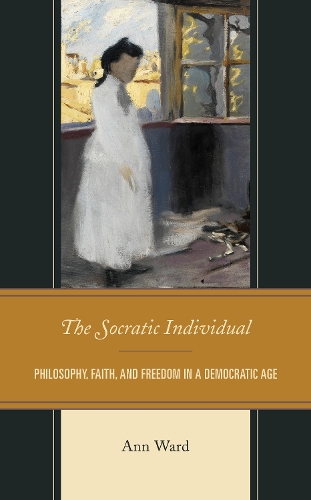
The Socratic Individual: Philosophy, Faith, and Freedom in a Democratic Age
(Hardback)
Available Formats
Publishing Details
The Socratic Individual: Philosophy, Faith, and Freedom in a Democratic Age
By (Author) Ann Ward
Bloomsbury Publishing PLC
Lexington Books
15th May 2020
United States
Classifications
Professional and Scholarly
Non Fiction
Social and political philosophy
190.9034
Physical Properties
Hardback
152
Width 161mm, Height 231mm, Spine 18mm
404g
Description
The author explores the recovery of Socratic philosophy in the political thought of G.W.F. Hegel, Soren Kierkegaard, John Stuart Mill, and Friedrich Nietzsche. Ward identifies the cause of the renewed interest in Socrates in Hegels call for the absorption of the individual within the modern, liberal state and the concomitant claim that Socratic skepticism should cease because history has reached its end and perfection. Recoiling from Hegels attempt to chain the individual within the cave, nineteenth century thinkers push back against his deification of the state. Yet, underlying Kierkegaard, Mill and Nietzsches turn to Socrates is their acceptance of Hegels critique of the liberal conception of the rights-bearing individual. Like Hegel, they agree that such an individual is an unworthy competitor to the state. In search of a noble individual to hold up against the state and counter the belief in the end of history, Kierkegaard, Mill and Nietzsche bring back and transform Socrates in significant ways. For Kierkegaard the Socratic philosopher in modern times is the person of faith, for Mill the public intellectual whose idiosyncratic identity arises from the freedom of speech, and for Nietzsche the Dionysian artist. Each model the beauty of individuality in our democratic age.
Reviews
Despite its announced focus on the "revival" of Socrates across 19th-century philosophy, this book is really about Kierkegaard, whose views on rationality and faith Ward (political science, Baylor Univ.) examines with skill. Socrates's questioning stands in relation to Abraham for Kierkegaard; knowing what he does not know "empties" Socrates and turns him away from reason and moral absolutes. Socrates lives questioning, as Abraham abandons moral argument in favor of his silent, living faith that God will restore Isaac. Neither man knows, yet both proceed with embodied passion. Ward explicates Kierkegaard in contrast to Hegel, Mill, and Nietzsche. For Hegel, Socrates plays a lesser role, since he lacked the modern liberal state required for ultimate fruition of rationality. Mill sees Socratic questions as crucial to individual diversity in the face of Christian homogenization. Nietzsche similarly suspects Christianity, but he finds in Socrates's physicality an example of the Dionysian dimension of life he wants to exalt. . . Summing Up: Recommended. Lower- and upper-division undergraduates; graduate students.
-- "Choice Reviews"The Socratic Individual is one of those books that gestures beyond itself, provoking much delightful contemplation even beyond its pages. It is a must-read for those interested in Socratic reception, particularly the treatment of Socrates and Socratic philosophy in modern political thought. It is also a book for anyone interested more broadly in the themes of reason vs. passion, philosophy vs. faith, and, of course, the individual vs. the collective.
-- "VoegelinView"Author Bio
Ann Ward is professor of political science at Baylor University.
